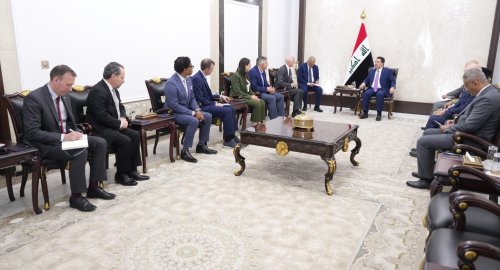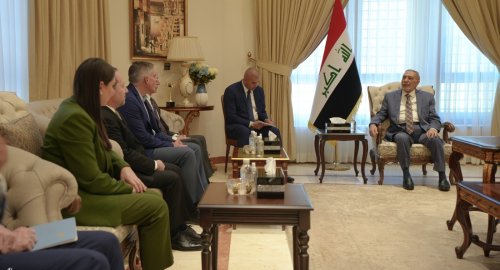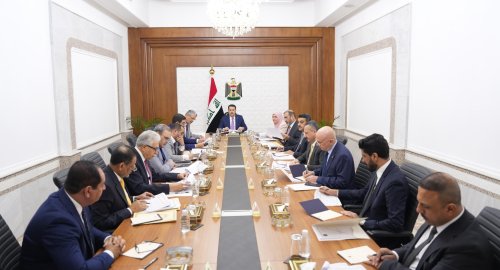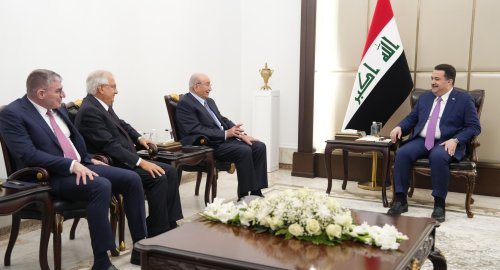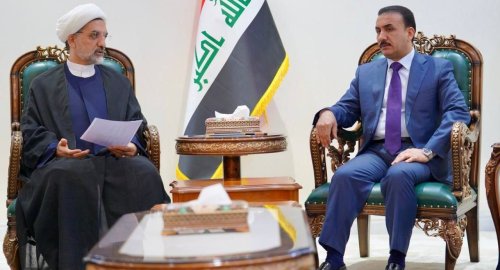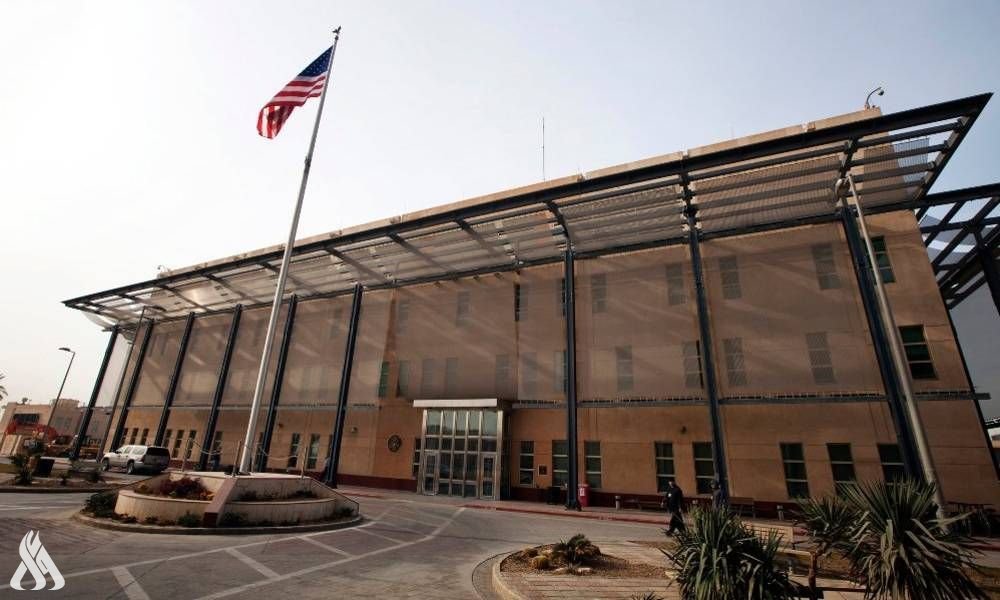
Foreign Affairs: PM Supports economic gatherings to strengthen relations between Countries of the Region

- 21-06-2023, 18:45
Baghdad-INA
The spokesman for the Ministry of Foreign Affairs, Ahmed Al-Sahhaf, confirmed on Wednesday, that the vision of Prime Minister Muhammad Shia Al-Sudani supports the establishment of economic groupings to strengthen relations between the countries of the region, while he clarified Iraq's roles in reducing escalation and giving priority to the language of dialogue.
Al-Sahhaf said, to the Iraqi News Agency (INA): "The vision pursued by Iraqi foreign policy through the Ministry of Foreign Affairs is based on full respect for the sovereignty of states and non-interference in their internal affairs," noting that "all the positions issued by the ministry urged dialogue, especially with regard to files Yemen, Libya and Sudan as a result of the recent events."
He added, "The ministry urged the two parties to the conflict in Sudan to the importance of relying on the dialogue table and adhering to the most important principles that would spare the people the consequences of being drawn into the scourge of internal fighting, and more attrition that will result in loss to the Sudanese state institutions, as well as the interests of the people, including the daily life trends that have become more complicated."
He added, "Iraq made 3 evacuation flights to return the Iraqi community from Sudan, with 4 planes, through which 595 Iraqi citizens were returned, along with dozens of Sudanese and Syrians."
Regarding the crisis in Libya, Al-Sahhaf stressed that "Iraq continued to call for the importance of relying on a political solution, supporting the rights of the Libyan people and not interfering in their internal affairs, in order to pave its way towards Libyan national solutions and initiatives that reflect on the strength of state institutions and help the Libyan people to overcome their ordeal," Pointing out, "Iraq also continued to call for the importance of finding a Yemeni-Yemeni solution that prevents interference in internal affairs and provides an opportunity for the Yemeni political space to breathe the possibilities of finding internal solutions that help its people overcome the difficulties they are going through."
He pointed out, "Iraq welcomes all international initiatives that lead to reducing escalation in every geographical area and end to ending tensions, saving people and sparing them the scourge of wars, conflicts and scarcity of resources that are reflected in the response in their daily lives."
On the Syrian issue, Al-Sahhaf explained that, since 2012, Iraq has constantly called in bilateral and multilateral forums for the return of Syria to its seat in the Arab League, and continued to weave dialogues with all Arab, European and Islamic parties in this regard, and for the Arab League to be inclusive of all its parties until it ended. It was the decision of the Arab League at the ministerial level in the emergency meeting that was held and produced its decision to return Syria to its seat."
He stressed, "Iraq took its position in the five-member committee that was nominated for the same meeting in the Arab League, so that Iraq would be an active and essential party through the presence of Deputy Prime Minister and Minister of Foreign Affairs Fouad Hussein, so that the five-member team would start rounds of its dialogue with Arab and international parties to continue emphasizing the solution to the Syrian issue and support The Syrian people on the basis of a humanitarian solution, support for Syrian refugees, and enable them to return to their country safely, as well as support for the paths of the Syrian-Syrian political solution and non-interference in internal affairs."
Al-Sahhaf indicated : "We are talking about balanced, moderate diplomacy based on promoting collective initiatives for dialogue between the various parties to weave initiatives that end in reducing escalation, devoting balance and stability, exchanging information and coordinating among all parties."
He pointed out, "Iraqi foreign policy stems from the neighboring countries of Iraq on the basis that it is a priority for the stability of Iraq and a guarantee for it in view of the historical constant variables represented by history, civilization and geographical location, and the popular overlap between Iraq and the peoples of the region, and the variable on the one hand that is based on the interests that the Iraqi state aspires to Represented by its executive body, which is the Iraqi government in light of the presence of the government program of Prime Minister Muhammad al-Sudani."
He explained, "Iraq is talking about collective initiatives, especially as it is stepping in this direction to dedicate strategic political dialogues between Tehran and Riyadh that ended with the resumption of diplomatic relations between the two countries, and other dialogues that ended in further softening the atmosphere, then the Baghdad conference was held in its first and second editions, and we are preparing for the Baghdad conference." In its third edition, it is a political dialogue conference that addresses security issues, reviews positions at the regional level, and frames sustainable relations based on development and the economy."
He noted, "The Prime Minister sees in the economic groupings in the region a way and a legitimate framework for building relations consistent with the changes that may occur in the hierarchy of power in the world, and given the great human resources and strategic wealth enjoyed by the countries of the region that can establish a prosperous life for the peoples of the region if this approach continues, there will be more consensus and dialogue, taking opportunities to invest them, as well as rising collectively to face challenges."
US Embassy: Trade Mission of 60 Companies Visits Iraq
- politics
- 25/04/07
CBI unveils comprehensive reform plan to modernize banking sector
- Economy
- 25/04/07
Al-Sudani Meets Delegation from J.P. Morgan Bank
- politics
- 25/04/08
PM: The value of investment licenses in Iraq reaches $88 billion
- politics
- 25/04/09



